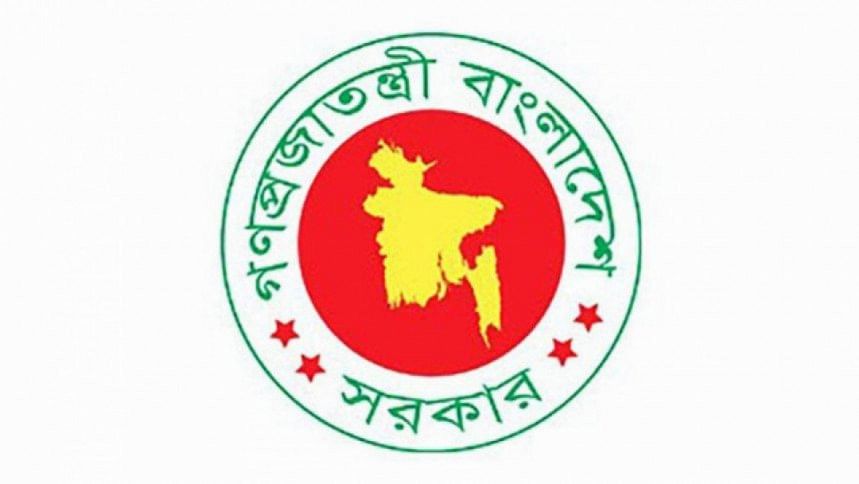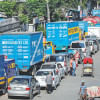Ministers are the boss, bureaucrats real boss

Who is calling all the shots in government affairs at the moment, the ministers or the bureaucrats? The answer is pretty obvious.
A huge change took place in power dynamics over the last few years, with bureaucrats taking all the crucial decisions and ministers executing those. Be it policy formulation or its execution, public servants are seen lording over public representatives.
In every recent crisis, especially since the start of the Covid-19 pandemic, bureaucrats were found to be taking major policy decisions with politicians mostly out of the loop.
Not only are they having the final say, the civil servants are also executing many of those decisions -- traditionally supposed to have been carried out by political leaders.
From imposing lockdown during the pandemic to distributing relief among the affected people and shutting educational institutions and other establishments, bureaucrats took almost all decisions without consulting political leaders.
Health Minister Zahid Maleque had voiced his helplessness over the measures taken to fight the pandemic.
The minister, who headed the national committee to tackle coronavirus situation, had to go on the record saying, "I am the chairman of the national committee as the health minister, but I am not aware of the decisions.
"I don't know much about the discussions on when the factories will open, or whether they will resume operations, or how the mosques will organise their prayer congregations," he told a discussion on April 5, 2020, weeks after the pandemic hit the country.
As the country is currently facing an economic crisis in the fallout from the Russia-Ukraine war, all policy decisions, such as the ongoing austerity measures, were taken by civil servants. Even the senior Awami League leaders were in the dark when the government raised the fuel prices to a record high.
"Such a move, which was made without any discussions at the party forum, has put Awami League leaders under tremendous pressure," AL Presidium Member Kazi Zafarullah told this newspaper after the hike.
In fact, the government over the years has placed incumbent and former bureaucrats at the helm of almost all state bodies, though some of those posts should have been filled by professionals with expertise.
Governance experts see this as the government's lack of confidence in public representatives or in professionals outside the civil service.
Former bureaucrats are now leading many constitutional bodies like Bangladesh Public Service Commission (PSC), National Human Rights Commission, Election Commission, Information Commission, and Anti-Corruption Commission. Professionals having solid backgrounds headed those orgnaisations previously.
Sadly, many of the measures failed to yield desired results while for some the government had to backtrack in the face of severe criticism.
But how has this all come into practice?
Experts say politicians do not even acknowledge the problem in the first place, which only make matters worse. They also observe that many politicians have little governance skills needed to make decisions that would help the country ride out the crisis.
"Politicians themselves have handed politics to bureaucrats. Under the present electoral system, the victory of public representatives in elections depends on public servants. As a result, bureaucrats are dictating the public representatives whereas it should have been the opposite," said Dr Tofail Ahmed, a local government expert.
He opined that in both AL and BNP, one person takes all the decisions and others just follow those.
"Political parties of this nature can't make decisions to lead the nation towards a solution."
Badiul Alam Majumdar, secretary of Shushashoner Jonno Nagorik (Shujan), a civil society platform, said that in a democracy, people's representatives are supposed to take every decision, but it is being proved that Bangladesh has become "a republic of bureaucrats" as they are making all the crucial decisions.
The bureaucrats' sway over politicians is now one of the most discussed issues among the ruling party leaders. The leaders, however, would not speak out about it.
The Daily Star talked to some AL leaders to know why the ministers often cave in to bureaucrats with regard to major decisions taken in their respective ministries.
According to them, the trend started in 2009 when AL formed the government and most of the party's veteran and experienced leaders were not included in the cabinet, and instead, young and district-level leaders were brought in.
With the ministers relatively new to the workings of the government, bureaucrats took full advantage. Many of the cabinet members started accepting the tutelage of the bureaucrats, AL leaders observed.
They said all bureaucrats in key ministries are politically influential and they are more known for their political identities rather than for their roles as civil servants.
The leaders blamed the absence of career politicians both in parliament and cabinet for the present situation. According to them, businesspeople-turned MPs are more interested in expanding their businesses than in focusing on national issues.
According to a report by Transparency International Bangladesh (TIB), 61 percent members of the current Jatiya Sangsad are businesspeople, 13 percent lawyers, 5 percent politicians and 21 percent are from other professions.
In the first parliamentary election in 1973, only 15 percent winners were in business. But the scenario started to change after 1990 and the businesspeople outnumbered the politicians in the national polls afterwards. In the 1996 parliament, 48 percent of the MPs were businesspeople. The figure was 51 percent in 2001, 63 percent in 2008 and 59 percent in 2014.
Recent remarks by Planning Minister MA Mannan, who joined the ruling party in 2005 after retiring from government service, aptly summarise the politicians' helplessness.
On June 27, he told a programme that bureaucrats are keeping local representatives -- who seek allocation for rural development -- on a tight leash.
"A local representative has to struggle to meet even a petty officer at the Secretariat. A union parishad chairman has to wait days to meet a senior assistant secretary.
"To get an allocation of Tk 100, local representatives have to show Tk 20 [in their pocket] first. As a result, local representatives opt for a tortuous path instead of a direct route."
Asked why such a situation emerged, local government expert Tofail said it was bound to be like this. "When the politicians' popularity, their probability of getting elected and picking of party candidates are determined by intelligence agencies, and when public servants have to play a role in their elections, such situation was inevitable."
Last year, the government formed committees headed by secretaries in 64 districts to oversee relief operations. It angered some senior politicians who vented their frustrations in parliament at that time.
On June 28 last year, veteran AL leader Tofail Ahmed said in parliament, "I am sorry, I don't know whether I should say it here or not. An administrative officer has been given the responsibility in our district [Bhola]. We, the politicians, help people but they think all that help is being provided by administrative officials. This needs to be noticed. We need officials from the administration, but not with the exclusion of politicians."
Expressing a similar view, Jatiya Party leader Kazi Firoz Rashid said, "There is no politics in the country now. Secretaries are given charges of districts ... bureaucrats run the country.
"Sometimes, MPs need to request the DCs to let them talk to the prime minister. When such things happen, it weakens the importance of lawmakers."
He also said businesspeople and bureaucrats are running the country. "We, the politicians, are now standing in the third line. This is our bad luck. But this country was liberated by politicians."
When the country is facing volatility in forex reserves caused by the pandemic and Russia-Ukraine war, bureaucrats are at the forefront again, making decisions and executing them too.
A series of meetings were held under the directives of Cabinet Secretary Khandker Anwarul Islam, while PM' Principal Secretary Ahmad Kaikaus played a key role in taking many decisions. Of the decisions, some did not yield expected results while some others were not pro-people, according to ruling AL leaders.
The decision of hiking fuel prices at the beginning of this month irked many AL leaders. Since then, no meeting of the AL central working committee, the highest decision-making body of the party, and the presidium, highest policy-making body, was held to make political decisions to face the crisis.
Politicians not only have failed to take national policy decisions, but also went on to make tone-deaf statements, irking the ordinary people.
An incident that took place in Barguna on August 15 could be cited here as an example of a politician's helplessness.
That day, police used batons against Chhatra League men during a National Mourning Day programme, injuring at least 50 leaders and activists of the pro-AL student front.
It occurred in the presence of local AL lawmaker Dhirendra Debnath Shambhu, who was seen repeatedly asking police not to beat Chhatra League men.
In a video clip that went viral on social media, some police officials were seen having an altercation with the five-time lawmaker, who was also a former state minister.
Later, the additional superintendent of Barguna police was withdrawn from the district.
But how can the politicians play their due role amid such crises?
Badiul Alam Majumdar opined that establishing a real democratic system and ensuring a fair system to elect people's representatives could bring changes to this situation.

 For all latest news, follow The Daily Star's Google News channel.
For all latest news, follow The Daily Star's Google News channel. 








Comments